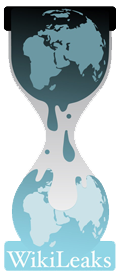WikiLeaks - To Report Or Not To Report?

The request raises interesting questions for journalists: do we acquiesce to the Defense Department and damage our credibility; or do we report on the classified information as part of our role as watchdogs and possibly place American troops in harm’s way? Both options come with risks. However, the bigger risk is remaining silent.
The men and women of our military have an extremely dangerous job. Yet, I find the Pentagon’s argument that disclosing the WikiLeaks information will cause them harm to be questionable.
The reasons are two-fold. First, WikiLeaks released thousands of classified documents pertaining to the war in Afghanistan back in August and there has been no evidence of an up-tick in American casualties since that initial release. Second, blaming the media for reporting on potentially illegal activities of American troops is just plain ridiculous. If troops are acting in a less than honorable manner and military officials are condoning these actions, they are increasing the danger all on their own.
Based on the reaction out of the Pentagon earlier in the week I expected the leaked material to contain deleterious information about our military operations in Iraq but this wasn’t necessarily the case. Instead the information mostly paints an unfavorable picture of Iraqi authorities, documenting abuses and torture at their hands. Even if the documents reflected tons of abuses at the hands of Americans, I would still maintain the validity and necessity of releasing the documents and reporting on them.
One of the biggest stories of the Iraq War was the abuse of prisoners at Abu Ghraib. Shock and disgust were felt around the world when the pictures depicting abuse and torture of prisoners by US troops surfaced in 2004. I don’t recall any debate surrounding whether or not to release this information. In fact, media reports of the abuse led to a military investigation and numerous charges and court-martials. There have been no reports of events similar to those at Abu Ghraib occurring at the hands of our military in Iraq since these investigations.
It should be pointed out that each of the hundreds of thousands of documents has been redacted. Key information such as unit, personnel and exact location of the incident have been removed from the documents, but you can still get a feel for what happened from reading the reports. These leaked documents did not detail any upcoming operation or discuss specific military capabilities; they merely detailed events that had already occurred.
The debate surrounding WikiLeaks reminds me of a passage from the book In the Hot Zone by journalist Kevin Sites. This excerpt is about what Sites saw in his time embedded with Marines in Falluja.
“The story is about being loyal to the truth as a nation, that citizens of a democracy are collectively responsible for what their troops do in war, good or bad. It’s my job to make sure they see all of it.”
When our military violates the laws of war, it degrades our entire country and our international standing. If the Defense Department is allowed to dictate what the media can and cannot report, we might as well throw the First Amendment out the window.
Reach Reporter Christine Detz click here



